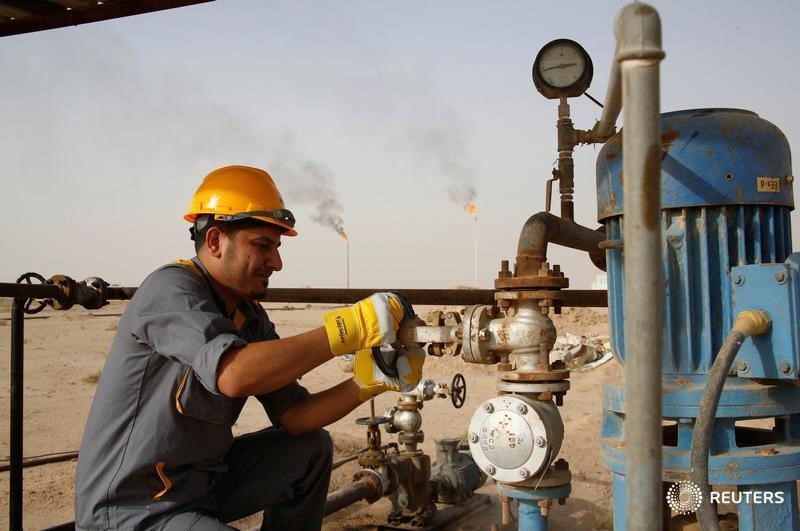By Peter Nurse
Investing.com -- Oil prices edged higher Thursday, on course for strong weekly gains as China attempted to boost demand while global supply remained very tight.
By 08:40 ET (12:40 GMT), U.S. crude futures traded 0.1% higher at $94.94 a barrel, while the Brent contract rose 0.4% to $101.67. Both contracts are on course for weekly gains of around 5%.
U.S. Gasoline RBOB Futures were up 0.2% at $2.8053 a gallon.
The Chinese government announced plans earlier Thursday to top up its economic stimulus to 1 trillion yuan (around $150 billion).
This attempt, to try and restore an economy ravaged by drought and COVID-19 restrictions, has been well-received by the oil market, given China is the largest oil importer in the world.
This news has added positive momentum to a market that had already been boosted by the release of data by the Energy Information Administration showing that U.S. crude inventories fell by much more than expected last week.
The volume of crude and its products exported from the U.S. last week was the highest in a series going back to February 1991.
"EIA numbers released yesterday were fairly constructive," said analysts at ING, in a note. "U.S. commercial crude oil inventories fell by 3.28MMbbls over the last week. However, when taking into account releases from the strategic petroleum reserve, total U.S. crude oil inventories declined by a significant 11.37MMbbls."
Additionally, earlier the week, Saudi Energy Minister Prince Abdulaziz bin Salman flagged the possibility that the Organization of Petroleum Exporting Countries and allies, a group known as OPEC+, could cut production, boosting the market.
He added that futures prices, which have fallen over 25% from their peaks earlier in the summer, are failing to reflect the tightness of the physical market.
Elsewhere, investors are also watching for progress on the revival of a nuclear deal with Iran, which could lead to the resumption of crude exports into the global market from the OPEC producer.
"The U.S. finally replied to the EU’s proposal for reviving the deal," ING added. "And while clearly, negotiations appear to be moving in the right direction, the US has said that "we’re not there yet" and that there are still "gaps" that remain."
